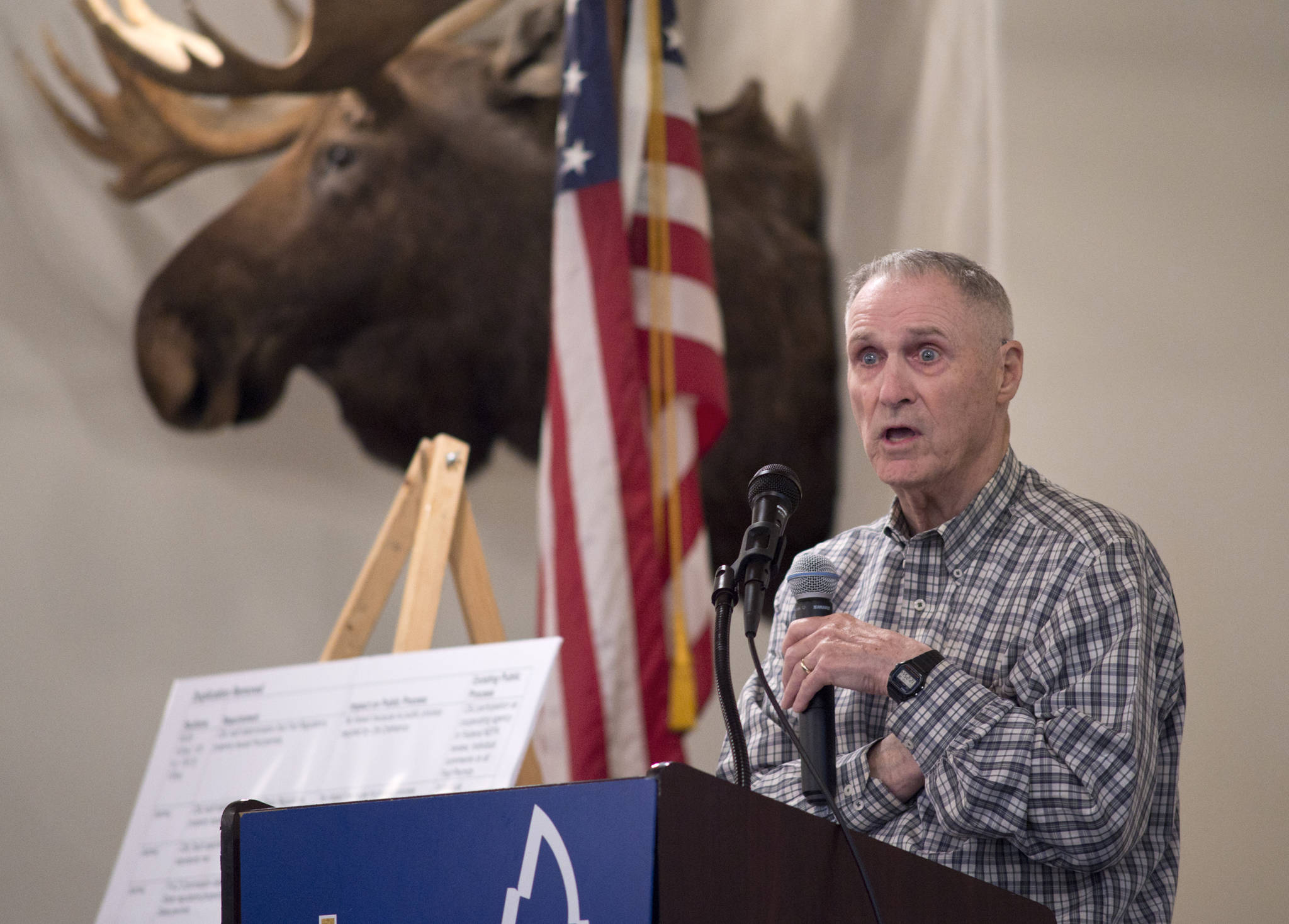Summary: That presentation wrapped up quickly. Bill Corbus maintained the proposed Fair Share Act would perhaps be a short-term answer to budget woes, but it would drive investment away from the state in the long run.
12:45 p.m.
Multiple questions from the audience have been statements in favor of maintaining or lowering the current tax rate.
12:40 p.m.
Ben Brown asked Corbus if there is some sort of tax change that could be made by the Legislature that would preempt the Fair Share ballot initiative and improve revenue but leave the tax rate “competitive.”
“As far as what the Legislature should do to balance the budget, that’s above my pay grade,” Corbus said. “Somebody else can figure that out.”
12:37 p.m.
Corbus said less cash flow could lead to reductions to that planned investment.
“We in Juneau maybe miss the fact of the employment that the oil fields provide,” Corbus said. “High-paying jobs and lots of ‘em.”
He shared projections for North Slope production that show 500,000 barrels of oil per day for a year for the next several years.
“I believe that the Fair Share proposal creates a barrier for maintaining current production and major new oil developments,” Corbus said.
He said under the act, the government take will increase from 62% to 76%.
“In the long run, I think we’re looking at lower production, so that’s something to keep in mind,” Corbus said. “A competitive share or a competitive tax rate with higher production is preferable to this so-called ‘Fair Share’ tax rate with lower production.”
“My message is: Alaska, don’t go there,” Corbus said.
I’ve reached out to Vote Yes for Alaska Fair Share Act, a group advocating for the initative. I have not yet heard back.
12:30 p.m.
Corbus said in the future, oil companies will certainly weigh “government take” when deciding where to invest.
“They’re planning on investing $11 billion in the next 10 years on the three legacy fields, and then they’re also planning on $13 billion for new fields,” Corbus said.
12:20 p.m.
“There’s other revenues from the oil industry other than just taxes,” Corbus said.
That includes royalties, which Corbus said account for about 55% of unrestricted oil revenues.
12:15 p.m.
Corbus said his talk will focus on the Fair Share Initiative.
That’s a campaign to remove oil tax credits.
“My premise is that this initiative is not good for Alaska,” Corbus said.
He said it may solve a short-term revenue problem, but it would do long-term damage.
12:10 p.m.
In light of the legislative session’s start and Alcoholic Beverage and Marijuana control board meetings and today’s speaker, this is an especially well-attended meeting. There’s probably about 50 people here.
12:05 p.m.
The Greater Juneau Chamber of Commerce is meeting at Elizabeth Peratrovich Hall today, and Bill Corbus is scheduled to speak about taxing the oil industry.
Oil tax credits continue to be a hot topic among lawmakers with some seeing them as necessary to attract investment and others seeing the industry as a potential revenue source for a state that was recently mired in budget debates.

